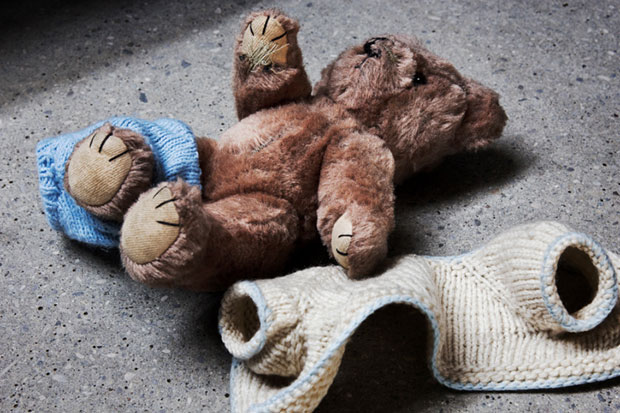God Help the Child, Toni Morrison’s 11th novel, hearkens back to two of her earliest. Like The Bluest Eye, it is a story of internalised racism and paedophilia; like Tar Baby it is a fable about sexual and racial autonomy in the form of a love story between a beautiful, vain woman and a man who thinks she has lost her moral compass. But unlike those earlier efforts, Morrison’s latest book offers only the most inconsequential answers to questions of grave consequence. Her abiding interest has always been self-possession and self-recovery, an especially charged problem for black people in a racist culture; but this novel reads like a précis of those themes, in which conviction substitutes for complexity — a colouring book that no one bothered to colour in.
The flimsy story offers an inversion of Snow White as a fable about child abuse: Lula Ann Bridewell is rejected as a baby by her mother, Sweetness, because of her jet-black skin. ‘I wished she hadn’t been born with that terrible colour.’ Sweetness thinks. ‘I even thought of giving her away to an orphanage someplace.’ This horror of blackness is shared by ‘friends or strangers’, who ‘would lean down and peek in to say something nice and then give a start or jump back’ from the baby, a response that seems a trifle uncommon.
Sweetness appears to inhabit the first half of the 20th century: her racial self-hatred is uncontaminated by any concept of racial pride, while she speaks of being ‘coloured’ and ‘high yellow’.But her daughter becomes an executive who designs cosmetics for women of colour, drinks Pinot Grigio, and listens ironically to Whitney Houston, so she inhabits the 21st century. Maybe this is supposed to be part of the fairy tale, a parable about telescoping attitudes to race, but it mostly feels like Morrison wasn’t paying attention.
Lula Ann grows up to be exotically beautiful, rejects her mother in turn, changes her name to Bride — just the one name, like Madonna, which no one appears to find absurd — and helpfully sums up her life for the reader: ‘Did you ever think you’d be this hot, or this successful?’ A few pages later, we discover that Bride has been rejected by a man she doesn’t think she loves, and has a guilty secret that is telegraphed around page 15. Bride never becomes more than a checklist of these four traits: hot, successful, angrily rejected, plus guilty secret.
In order to reconcile herself with her secret past, Bride must reconcile herself with her lover, Booker, who has a secret past that is the inverse of hers, an innocent yin to her guilty yang. (Everyone has fetchingly symbolic names: Booker likes to read and write, and Bride will meet Queen and Rain before she’s done with her journey.) For this to happen, Bride must embrace her inner child, unloved because too dark in a racist world.
Morrison decides to underscore this therapeutic cliché with a bit of gimcrack magical realism: after Booker leaves her, Bride regresses to childhood physically: she loses her pubic hair and breasts, her pierced ears close up, and she stops menstruating. While helpfully explaining this complex symbolism (‘She was changing back into a little black girl’), Morrison never apparently notices the extremely dubious sexual politics it creates: Bride needs the right man to be fully adult. So much for sexual autonomy.
The prose is especially disappointing: ‘The sun and the moon shared the horizon in a distant friendship, each unfazed by the other.’ Most of the writing consists of characters narrating their own thoughts:
There was nothing in the world left to do but stand up for herself finally and confront the first man she had bared her soul to, unaware that he was mocking her. It would take courage, though, something that, being successful in her career, she thought she had plenty of. That and exotic beauty.
All of the characters think in similarly obliging expository pronouncements, and the novel isn’t improved by a disjointed structure that mechanically cycles through different characters’ perspectives. None of them tells us anything different from anyone else, however, until we get to Booker and learn his back-story, in the book’s strongest and most moving section. But the plot never brings all the characters together, and at least one is quite supererogatory.
Bride eventually goes on a quest to find Booker, complete with a journey into a forest, a sojourn in a hut with Rain, and then an encounter with Queen, Booker’s aunt. Booker has sent his diaries to Queen for safekeeping, and although she has only met Bride five minutes earlier and never heard of her, Queen instantly offers to show Bride the diaries, saying: ‘Here, I’ll show you how and what he thinks.’
This isn’t Queen, of course, it’s Morrison, and unfortunately it sums up her diegetical technique throughout. ‘I might as well be talking to myself,’ Bride’s friend Brooklyn thinks, before disappearing from the story altogether — which is fine, as we never needed her anyway. We might all as well be talking to ourselves, and we’d probably be having better conversations.
Available from the Spectator Bookshop, £12.99 Tel: 08430 600033






Comments